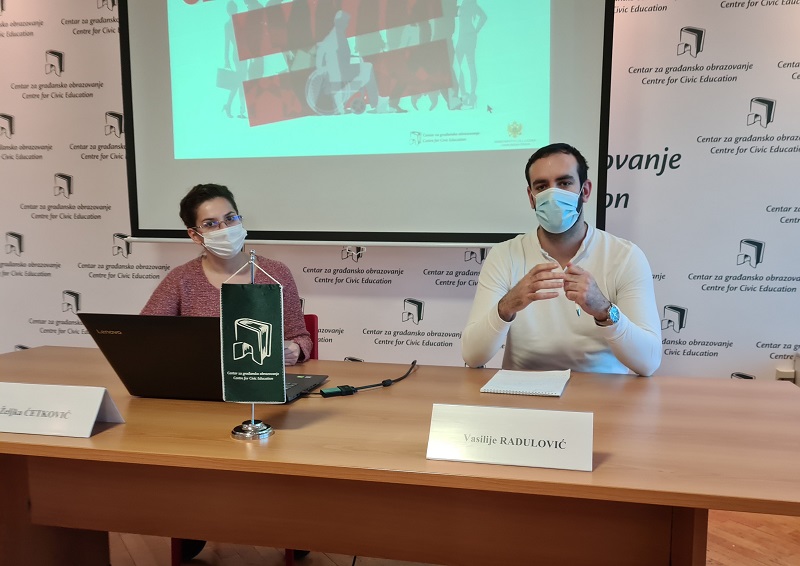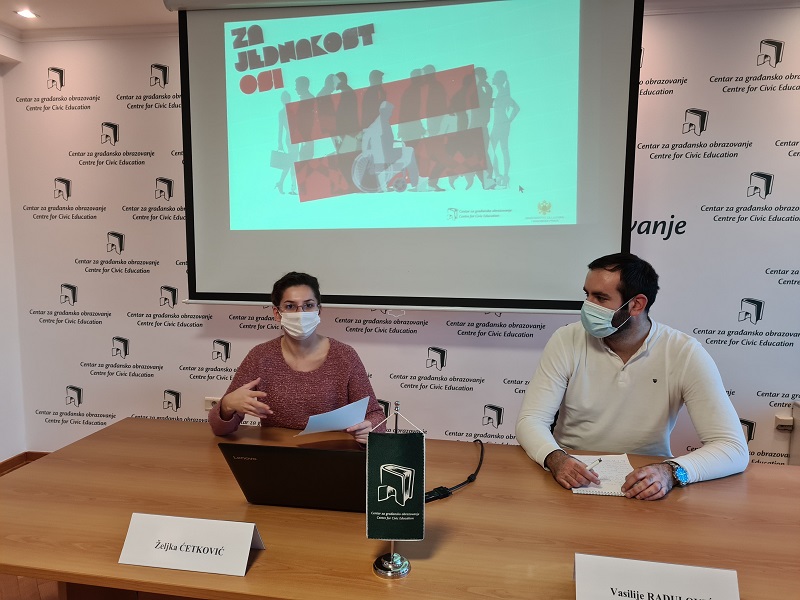Montenegro is making slow and unacceptably small progress in the area of the rights of persons with disabilities (PWDs), and persons with disabilities remain at the top of those recognized as the most vulnerable group. Therefore, more systematic and effective approaches are needed to improve the quality of life of this group, but also to increase their social inclusion, from which society itself can benefit greatly, represent some of the conclusions of today’s presented study “On the same lane?”, which Centre for Civic Education (CCE) has done within the project “For Equality of Persons with Disabilities“, with the support of the Ministry of Human and Minority Rights.
Zeljka Cetkovic, Coordinator of the Active Citizenship Programme in CCE and the main author of the study, reminded of the key findings of the CCE research on discrimination which indicate that persons with disabilities (PWD) are perceived by the general public as a group that, after Roma, is most exposed to discrimination, as well as that no progress in the position of PWDs in the past five years is noted. “People with disabilities in Montenegro face numerous prejudices, stereotypes, learned and established attitudes towards this group, which is often perceived as a burden on society, neglecting the potential and abilities that PWDs have, so these people remain on the margins of society,” she stated.
She also pointed out that “Montenegrin society is not sufficiently informed about the genuine position of persons with disabilities when it comes to their problems in the areas of employment, education, health care and accessibility, but also about the abilities that PWD, despite disability, have that can be appropriately used to increase the social inclusion of these people.”
Vasilije Radulovic, Programme associate and one of the co-authors of the study, emphasized the importance of education both in terms of accessibility of this important segment for people with disabilities and in terms of the significance of education in facilitating social inclusion of PWDs, reminding that “as many as 77% of Montenegrin citizens believe that children with disabilities should not be mixed with other children, which indicates a high degree of social distance towards people with disabilities.”
The aim of the study “On the same lane?” is to raise the level of information, promote the improvement of social inclusion of persons with disabilities and contribute to breaking down prejudices and stereotypes that further aggravate the situation of persons with disabilities in Montenegro. The study is divided into five thematic parts, i.e: employment, education, health care, accessibility of persons with disabilities, with the fifth one dealing with the results of public opinion polls about persons with disabilities, and the part containing conclusions and recommendations.
Maja Marinovic, Programme associate


